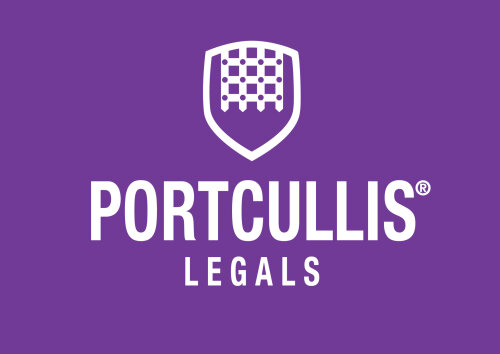Best Inheritance Law Lawyers in Plymouth
Share your needs with us, get contacted by law firms.
Free. Takes 2 min.
List of the best lawyers in Plymouth, United Kingdom
1. About Inheritance Law in Plymouth, United Kingdom
Inheritance Law in Plymouth follows England and Wales rules. It covers making a will, intestacy, probate, estate administration, and inheritance tax. In Plymouth, residents commonly work with local solicitors or probate specialists to navigate complex issues such as property in the area or high value estates. The process generally begins with the deceased’s last will or the intestacy rules if there is no will, and ends with distributing assets according to the law or the will.
Probate or the grant of representation is the key step to obtain authority to deal with the deceased person’s assets. If there is a valid will, a Grant of Probate is issued to the executors. If there is no will, a Grant of Letters of Administration is issued to the beneficiaries or rightful heirs. These steps are governed by national legislation and administered through the Probate Registry in England and Wales.
For official guidance on wills, probate and inheritance tax, see GOV.UK’s Wills, Probate and Inheritance Tax resources. GOV.UK - Wills, probate and inheritance tax
GOV.UK highlights that the probate process and estate administration are central to distributing assets after death.
2. Why You May Need a Lawyer
- Contested or challenged will in Plymouth - A beneficiary may challenge a will on grounds of lack of capacity, undue influence, or improper execution. A solicitor can assess validity, gather evidence, and represent you in negotiations or court if needed. In Plymouth, local courts align with England and Wales rules on will validity.
- Complex estates with property in Devon and beyond - If the estate includes multiple properties, rental incomes, or offshore assets, a legal professional helps with valuation, tax planning, and ensuring proper sequence of executors and administrators.
- Dependants seeking financial provision under the Inheritance Act 1975 - If a dependent or former spouse believes the estate should provide for them, a lawyer can assess eligibility and pursue a claim within the statutory framework.
- Possible Inheritance Tax planning and filings - High value estates may require careful IHT planning and timely filings with HMRC. A solicitor or tax adviser can help optimise reliefs and exemptions within Plymouth’s jurisdiction.
- Executor or administrator disputes or mismanagement - If an executor is not administering the estate properly, a lawyer can request accounts, resolve conflicts, and seek court intervention if necessary.
- Intestacy scenarios with local assets - When there is no will, the intestacy rules determine who inherits. A solicitor ensures proper administration and helps locate potential heirs in Plymouth.
In Plymouth, working with a solicitor or licensed conveyancer who specialises in probate and estate administration can improve clarity, speed, and accuracy in handling property transfers, tax matters, and disputes. For general guidance, GOV.UK explains the probate and tax framework, while Citizens Advice offers practical help for households navigating these issues.
GOV.UK - Wills, probate and inheritance tax | Citizens Advice - Wills, arrangements and probate
In England and Wales, the Inheritance Act 1975 provides a mechanism for dependants to claim reasonable provision from an estate if a will does not adequately provide for them.
3. Local Laws Overview
Wills Act 1837 - Sets the formal requirements for making a valid will in England and Wales. A will must be in writing, signed by the testator, and witnessed by at least two independent witnesses in most cases. This foundational statute governs will validity across Plymouth and the wider jurisdiction. For official context, see GOV.UK resources on wills and probate.
Administration of Estates Act 1925 - Provides the framework for administering deceased estates, including the process for obtaining grants of probate or letters of administration and distributing assets. This Act remains central to estate administration in Plymouth and the rest of England and Wales.
Inheritance Tax Act 1984 - Creates the tax regime on transfers at death. It includes the nil-rate band and residence nil-rate band mechanisms, with ongoing updates managed by HMRC. Estates may owe IHT if they exceed thresholds, and planning can mitigate liability.
Inheritance (Provision for Family and Dependants) Act 1975 - Enables certain family members or dependants to apply to the court for reasonable financial provision from an estate. The Act is frequently invoked in contested cases or where dependants feel provision is inadequate.
Recent trends and changes to these areas include changes to probate fees and updates to how IHT reliefs apply, which may affect Plymouth residents. For official guidance on IHT bands and administration, see HMRC and GOV.UK resources.
GOV.UK - Wills, probate and inheritance tax | GOV.UK - Inheritance tax | Inheritance (Provision for Family and Dependants) Act 1975 (legislation)
HMRC notes that the nil-rate band and residence nil-rate band thresholds influence how much estate tax may be due, with annual reviews and tapering rules for high-value estates.
4. Frequently Asked Questions
What is the difference between a will and intestacy?
A will specifies who inherits and who administers the estate. Intestacy applies when there is no valid will, and the estate is distributed under statutory rules.
How do I apply for probate in Plymouth?
Apply through the Probate Registry with the death certificate, will, and death estate details. A solicitors’ engagement can help prepare and submit the application.
When does probate typically start after death?
Probate usually starts within a few weeks after death, once the death is registered and the will (if any) is located. Delays can occur if will or executors are unclear.
Where can I store a will so it is found easily?
Keep the original will in a secure location such as a solicitor’s office, a bank’s safe deposit, or a will storage service. Inform trusted executors of its location.
Why might a will be challenged in Plymouth?
Challenges arise from concerns about capacity, coercion, invalid execution, or misrepresentation. A lawyer can assess grounds and advise on remedies.
Can I challenge a will under the Inheritance Act 1975?
Yes, dependants or certain family members may seek provision from the estate if reasonable provision is not made. A court will evaluate needs and interests.
Should I hire a solicitor or use a probate service?
Solicitors provide legal advice, court representation, and complex estate handling. A probate service may handle routine steps but may not offer full legal guidance.
Do I need to pay Inheritance Tax on an estate in Plymouth?
Not every estate pays IHT. Tax depends on the value of the estate and reliefs or exemptions applied. HMRC provides specific thresholds and reliefs.
Is there a time limit for distributing an estate?
Final distribution timing varies. Some tasks have statutory deadlines, while others depend on the complexity of assets and disputes.
How much does probate cost in Plymouth?
Costs depend on the estate value and whether you use a solicitor, a probate service, or both. Fixed-fee options may be available for straightforward cases.
Do I need a solicitor for an intestacy case?
A solicitor helps interpret the rules, locate beneficiaries, and manage the administration. Intestacy can be legally intricate if assets are spread across multiple jurisdictions.
How long does it take to settle an estate with property in Devon?
Estate settlement timelines vary widely. A simple estate may take 6-12 months; complex cases with properties and disputes can take 12-24 months or longer.
For deeper explanations of these topics, see GOV.UK and Citizens Advice sources cited above.
5. Additional Resources
- GOV.UK - Wills, probate and inheritance tax - Official government guidance on how wills are created, how probate works, and how inheritance tax applies. https://www.gov.uk/wills-probate-inheritance-tax
- Citizens Advice - Wills, arrangements and probate - Practical consumer guidance for households dealing with wills, probate and estate administration. https://www.citizensadvice.org.uk/debt-and-money/wills-arrangements-and-probate/
- The Law Society - Find a solicitor with probate and estate administration expertise. https://www.lawsociety.org.uk/find-a-solicitor
6. Next Steps
- Define your goals and the assets involved in the Plymouth estate. Gather the will, death certificate, and any existing grant documents. Expect this to take 1-2 weeks.
- Identify 3-5 Plymouth-based probate solicitors or firms with demonstrated experience in wills, trusts, and estates. Use The Law Society directory and local recommendations. Allow 1-2 weeks for outreach and initial contact.
- Check credentials and recent case experience relevant to your situation, such as intestacy, contested wills, or high-value estates. Schedule initial consultations.
- Request written quotes and clarify fee structures (hourly rates, fixed fees, or blended options). Discuss expected timescales and your preferred communication approach. Allow 1-2 weeks for responses.
- Attend a consultation to review your case, likely documents, and a proposed plan. Decide on engagement and sign a letter of engagement if you are comfortable. Plan for 1-3 weeks depending on availability.
- Provide all requested documents and appoint the solicitor as your representative. Confirm who will be the point of contact and how updates are shared. Implementation is immediate after engagement.
- Monitor progress and stay proactive with deadlines, including any HMRC deadlines for Inheritance Tax returns. Expect ongoing communication through the probate process, typically 6-12 months for straightforward cases and longer for complex estates.
Lawzana helps you find the best lawyers and law firms in Plymouth through a curated and pre-screened list of qualified legal professionals. Our platform offers rankings and detailed profiles of attorneys and law firms, allowing you to compare based on practice areas, including Inheritance Law, experience, and client feedback.
Each profile includes a description of the firm's areas of practice, client reviews, team members and partners, year of establishment, spoken languages, office locations, contact information, social media presence, and any published articles or resources. Most firms on our platform speak English and are experienced in both local and international legal matters.
Get a quote from top-rated law firms in Plymouth, United Kingdom — quickly, securely, and without unnecessary hassle.
Disclaimer:
The information provided on this page is for general informational purposes only and does not constitute legal advice. While we strive to ensure the accuracy and relevance of the content, legal information may change over time, and interpretations of the law can vary. You should always consult with a qualified legal professional for advice specific to your situation.
We disclaim all liability for actions taken or not taken based on the content of this page. If you believe any information is incorrect or outdated, please contact us, and we will review and update it where appropriate.









